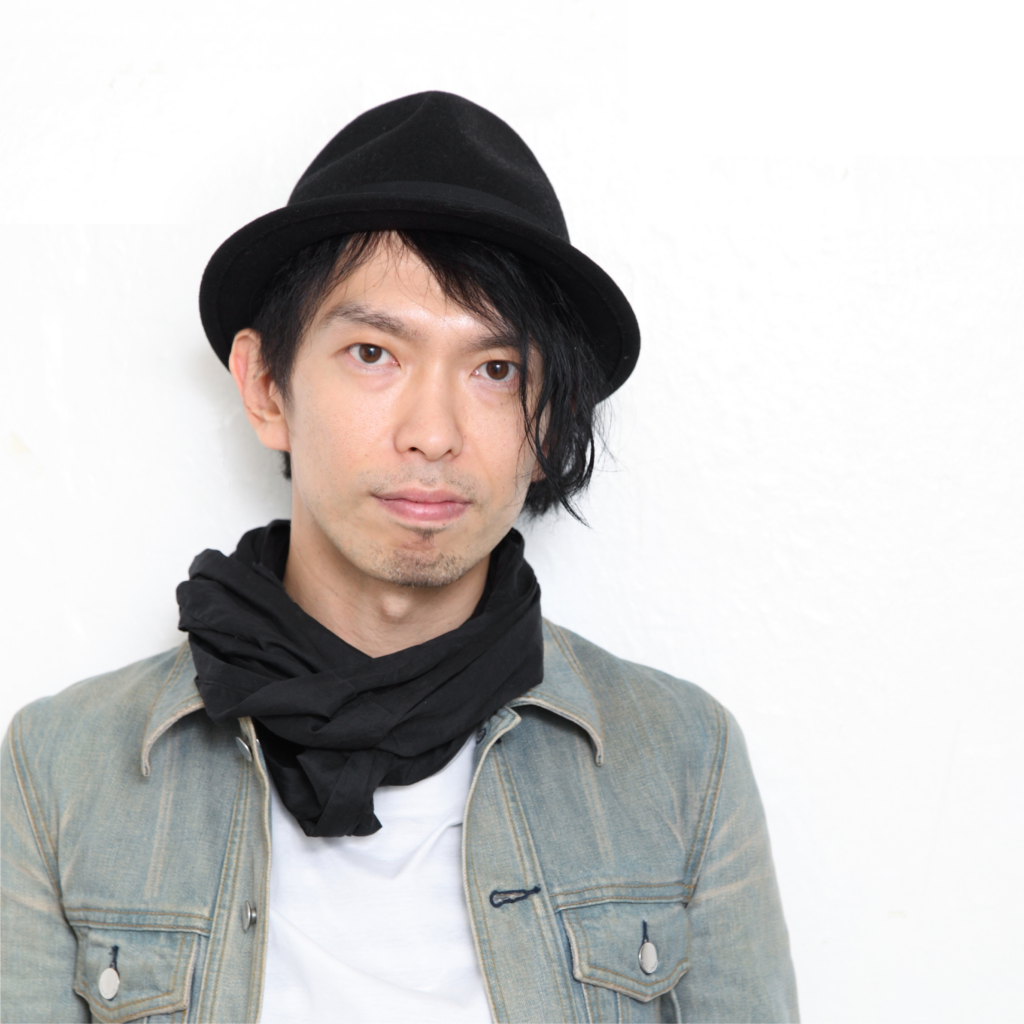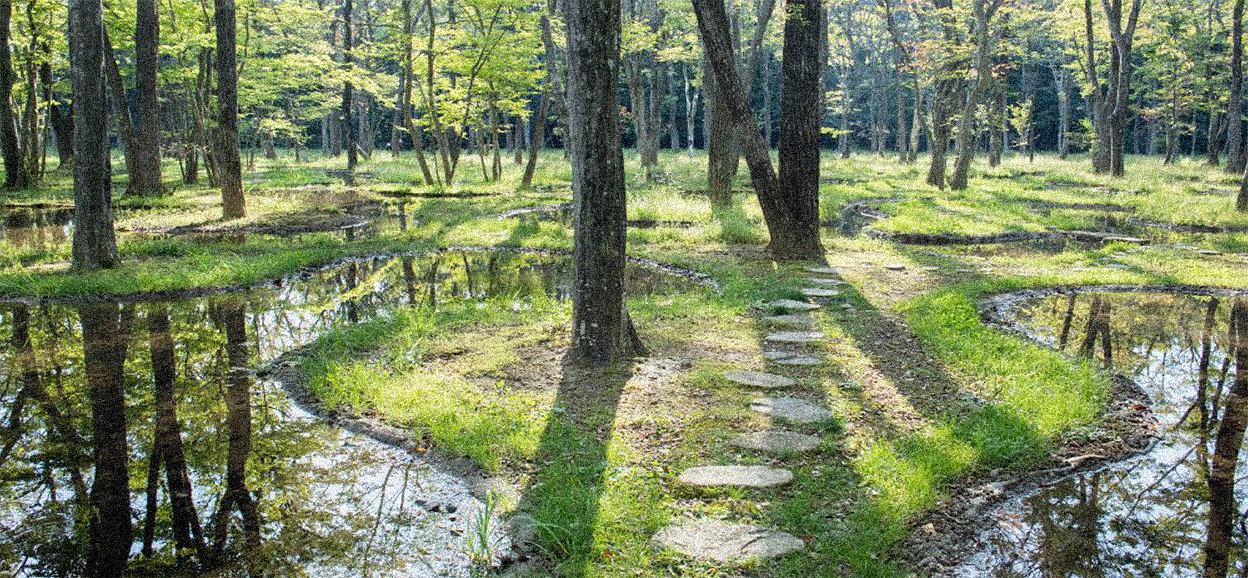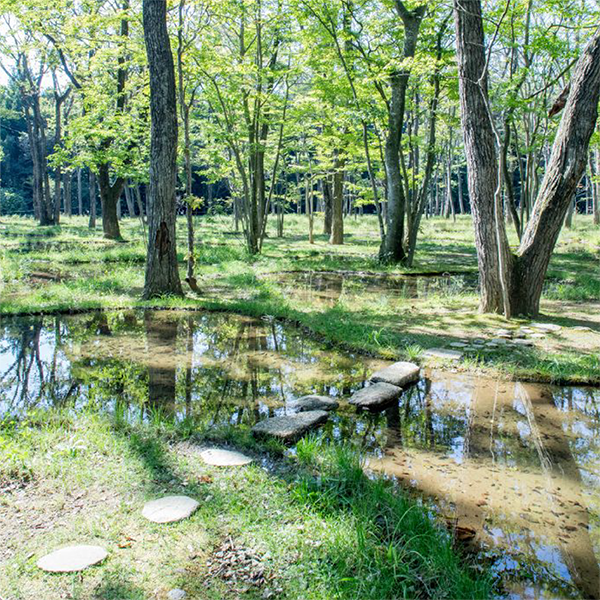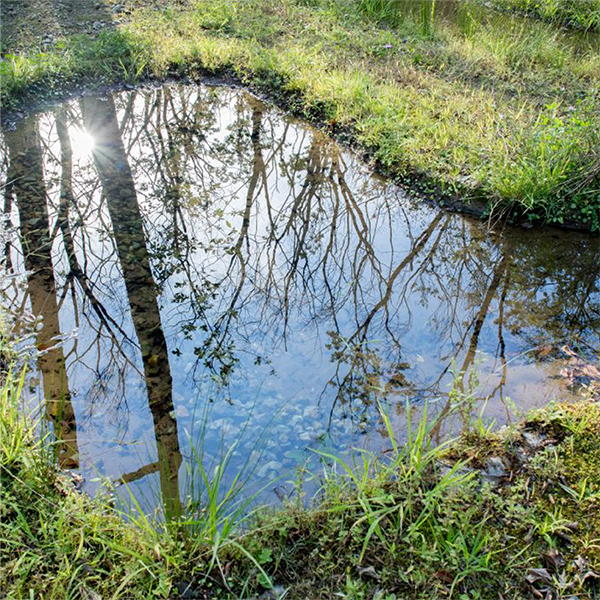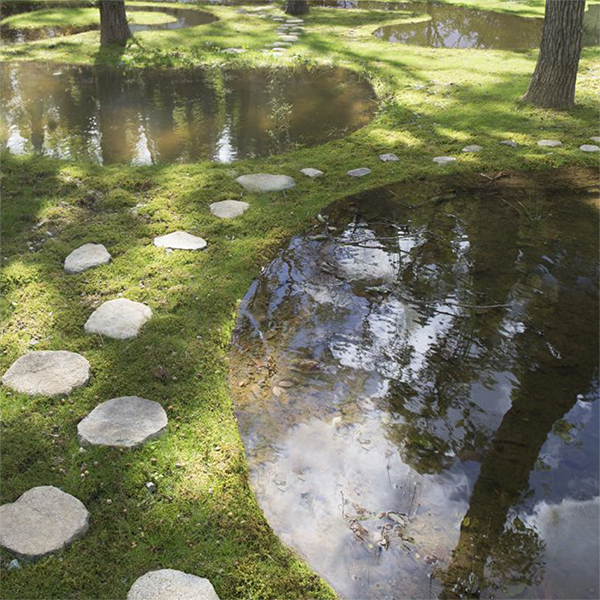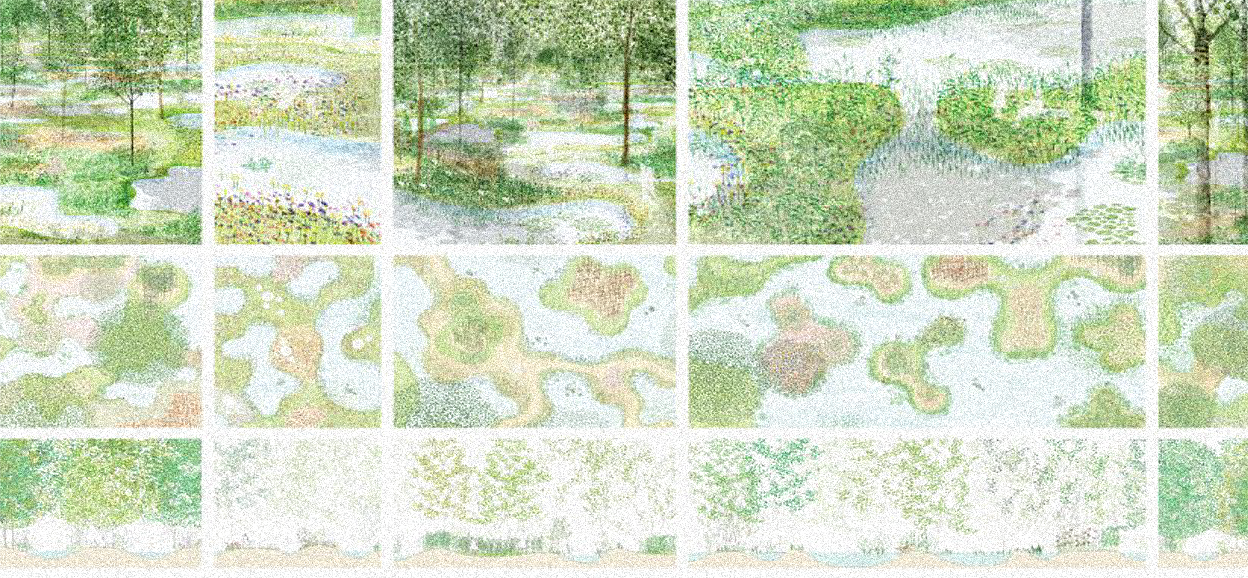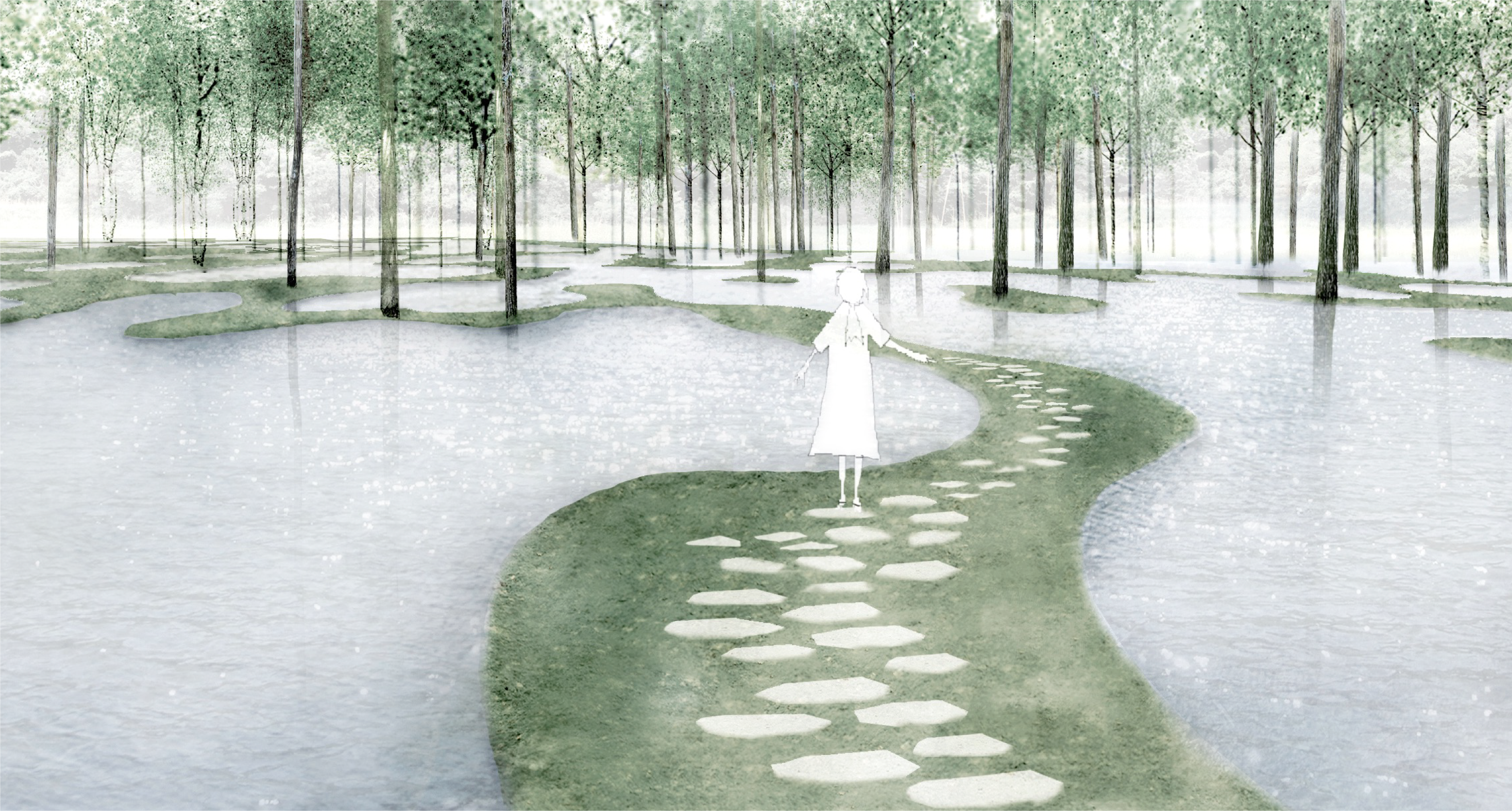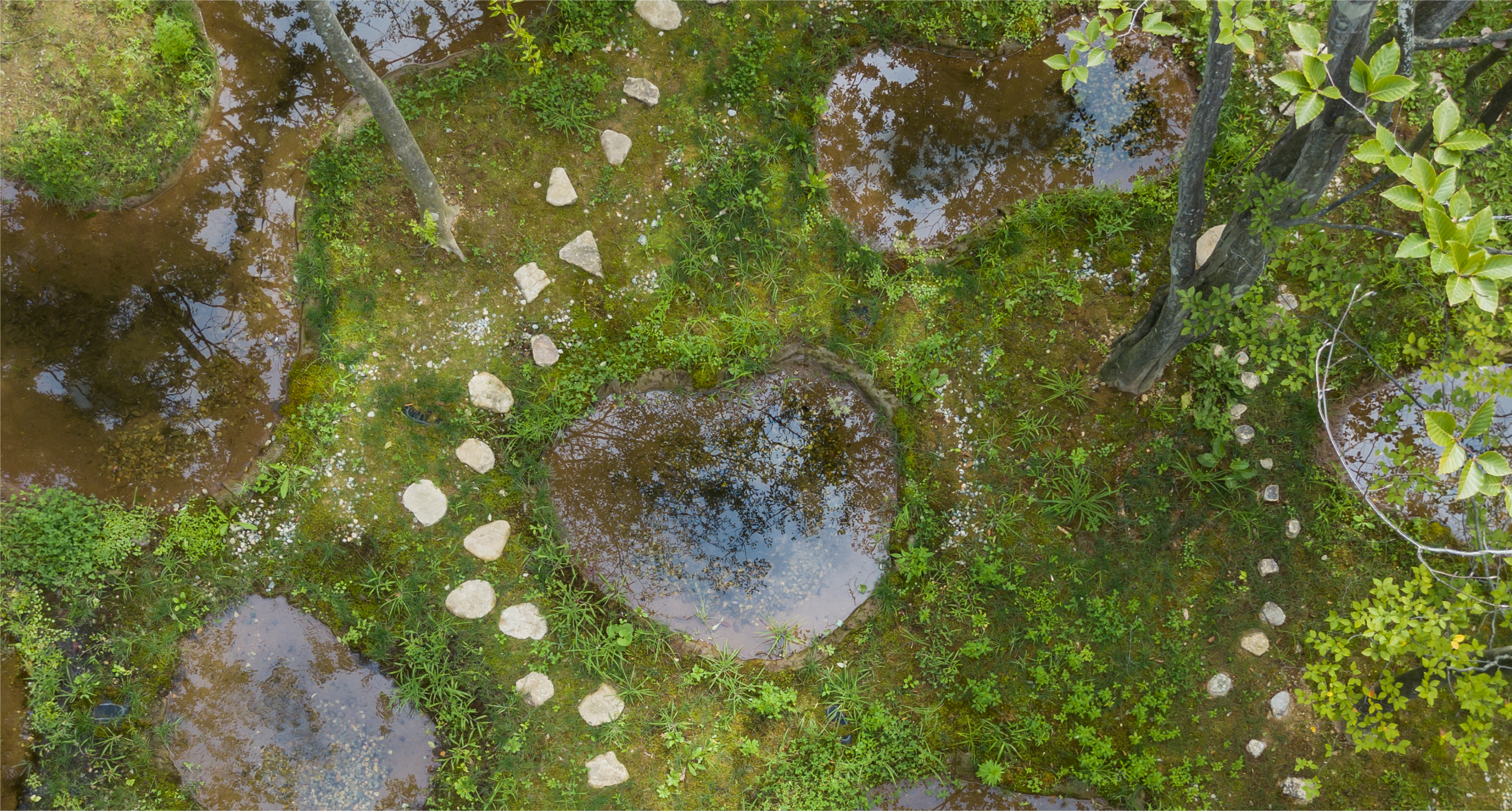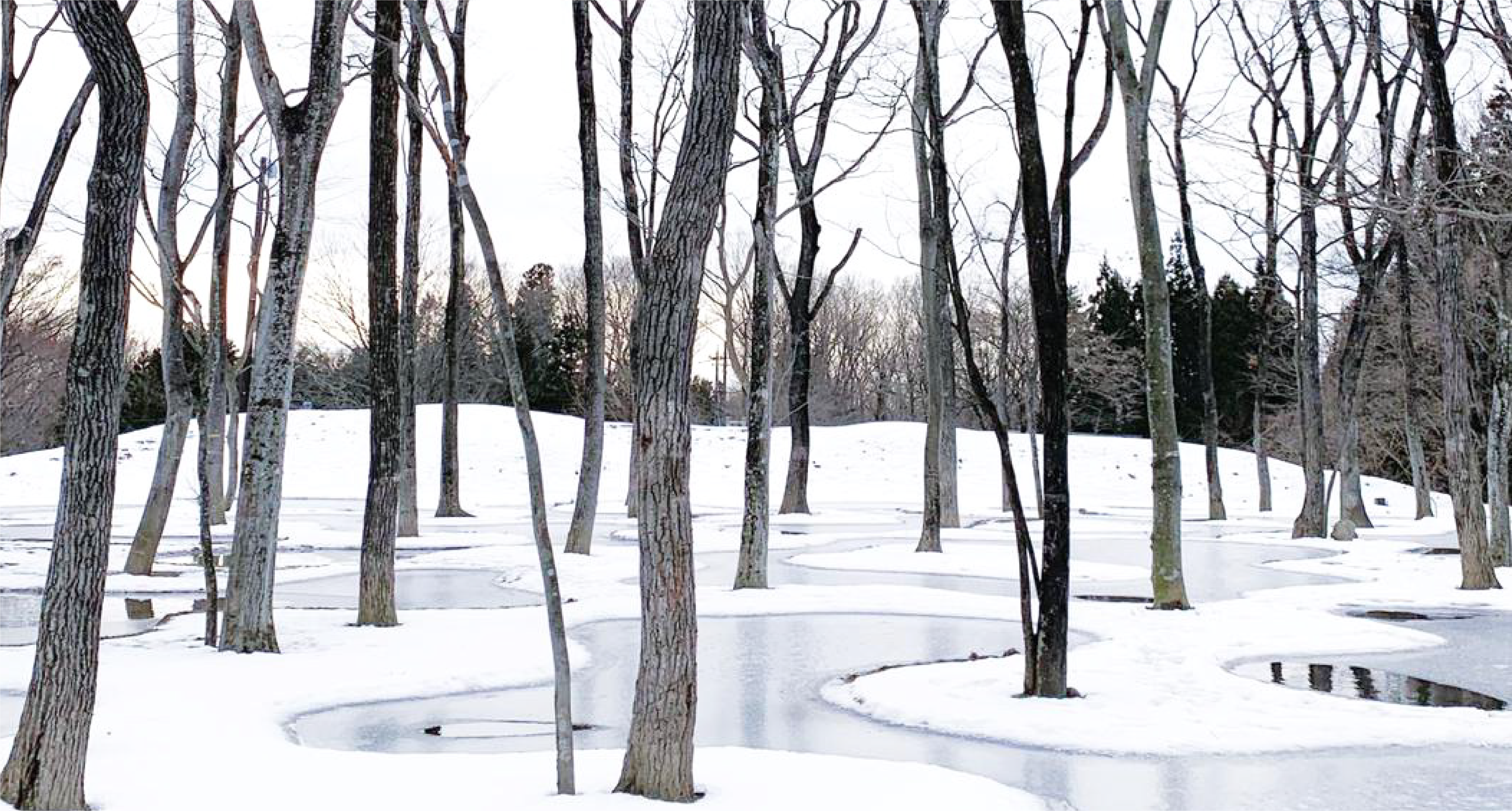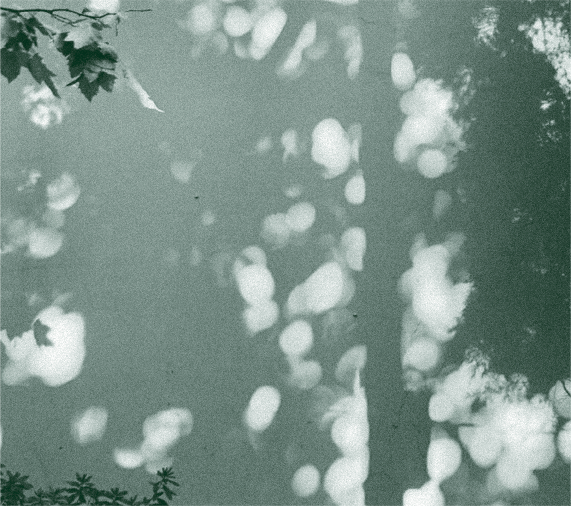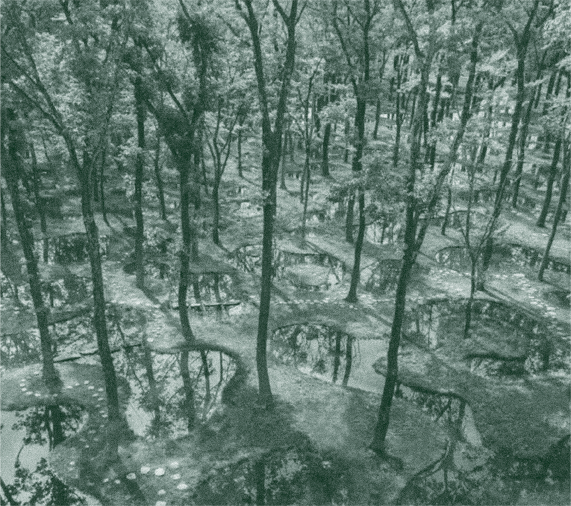Well-being
2019With its deliberate composition of natural elements, the man-made landscape Art Biotop Water Garden resets the boundaries between architecture, landscape architecture, art, and environmentalism.
THE PROJECT
At the foot of Mount Nasu in Tochigi, a prefecture north of Tokyo, lies a garden of serene beauty.
The new Botanical Farm Garden Art Biotop is an outdoor extension of the existing Art Biotop Nasu, a resort that offers courses in pottery, glass making, and other artistic activities.
Earlier, the site was a paddy field; earlier still, a forest overgrown with moss. Traces of the site’s history remains, such as a sluice gate to draw water.
The site of the new hotel was a forest, where many trees would be cut down due to construction. Because the total area of the forest site and that of the meadow site were nearly the same, Junya Ishigami proposed to relocate the entire forest to the adjacent meadow. Through this act, the meadow site is transformed not only by moving the forest, but also by superimposing all the layers from past environments in the site’s history: the landscape of the paddy field and the landscape of the mossy forest are overlapped as one. Trees from the adjacent forest are rearranged on the site, and water is drawn in from the existing sluice gate to fill countless ponds, all connected to the existing irrigation system with water flowing continuously at different rates. The ponds and trees spread across the entire site at a close density never found within nature, with moss laid out beautifully to fill the spaces in between.
With this new mossy forest of innumerable trees and limitless ponds, a new nature never before seen appears on the site.
See more about the project.
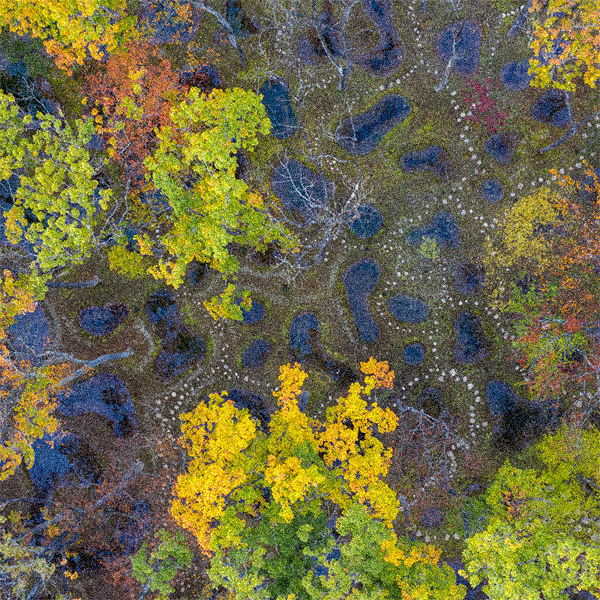
JURY’S STATEMENT
The garden is at once a highly artificial landscape, carefully modelled and dependent on technological artefacts, and an undeniably natural and living organism that grows and changes by its own inherent dynamics.
In this way, the garden intermingles different time-spaces: a presence of former, existing and future layers of landscapes. But although it is a large-scale and rather invasive project involving, as it does, the relocation of an entire forest tree by tree. Junya Ishigami makes evident what great respect and care for the environment means.
Ishigami’s approach relies in large part on emotions and sensations and is based on the context and the qualities of the landscape. The result is a landscape full of beauty and atmosphere – a highly poetic space that strongly influences the emotions of the visitor.
With the project, Ishigami invites professionals within the fields of architecture and visitors alike to foster a greater appreciation for the environment and to understand our relationship to it, but also to act with imagination, bravery, and respect. The project demonstrates how we can interact with and make our imprint on nature without destroying it. In this sense, the Art Biotop Water Garden is a seminal contribution to the fields of architecture.
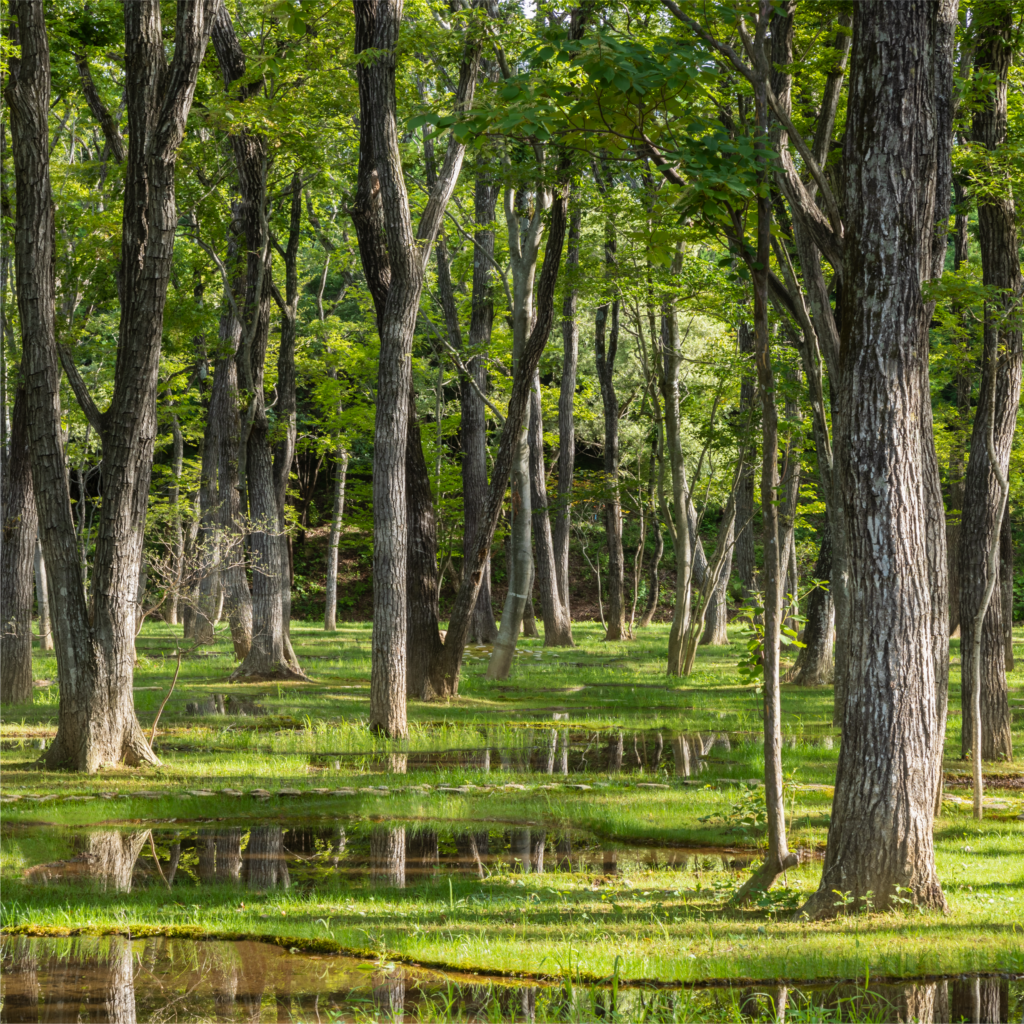
ABOUT JUNYA ISHIGAMI
“As architects we need to listen with care and humbleness to the voices of all the people on this earth who are in need of architecture.”
Born in 1974 in Kanagawa prefecture, Japan, Junya Ishigami is part of the young generation of Japanese architects that emerged in the 2000’s—on the coattails of Toyo Ito and Kazuyo Sejima. Educated at the Tokyo University of the Arts, Junya Ishigami started his career as an architect with the SANAA agency before founding JUNYA.ISHIGAMI+ASSOCIATES in 2004.
Appearing to break away from architecture’s rules and constraints, his work was quickly recognised for its originality and awarded numerous prizes.
Among his large-scale projects are the construction in 2008 of the Kanagawa Institute of Technology (KAIT Workshop), an exceptional building on account of its lightness and the continuity it provides between the interior and exterior; the restoration and transformation into a museum garden of the Moscow Polytechnic Museum in 2011; and the design in 2014 of the House of Peace for the city of Copenhagen, a huge cloud-shaped building resting on water and conceived as a symbol of peace.
